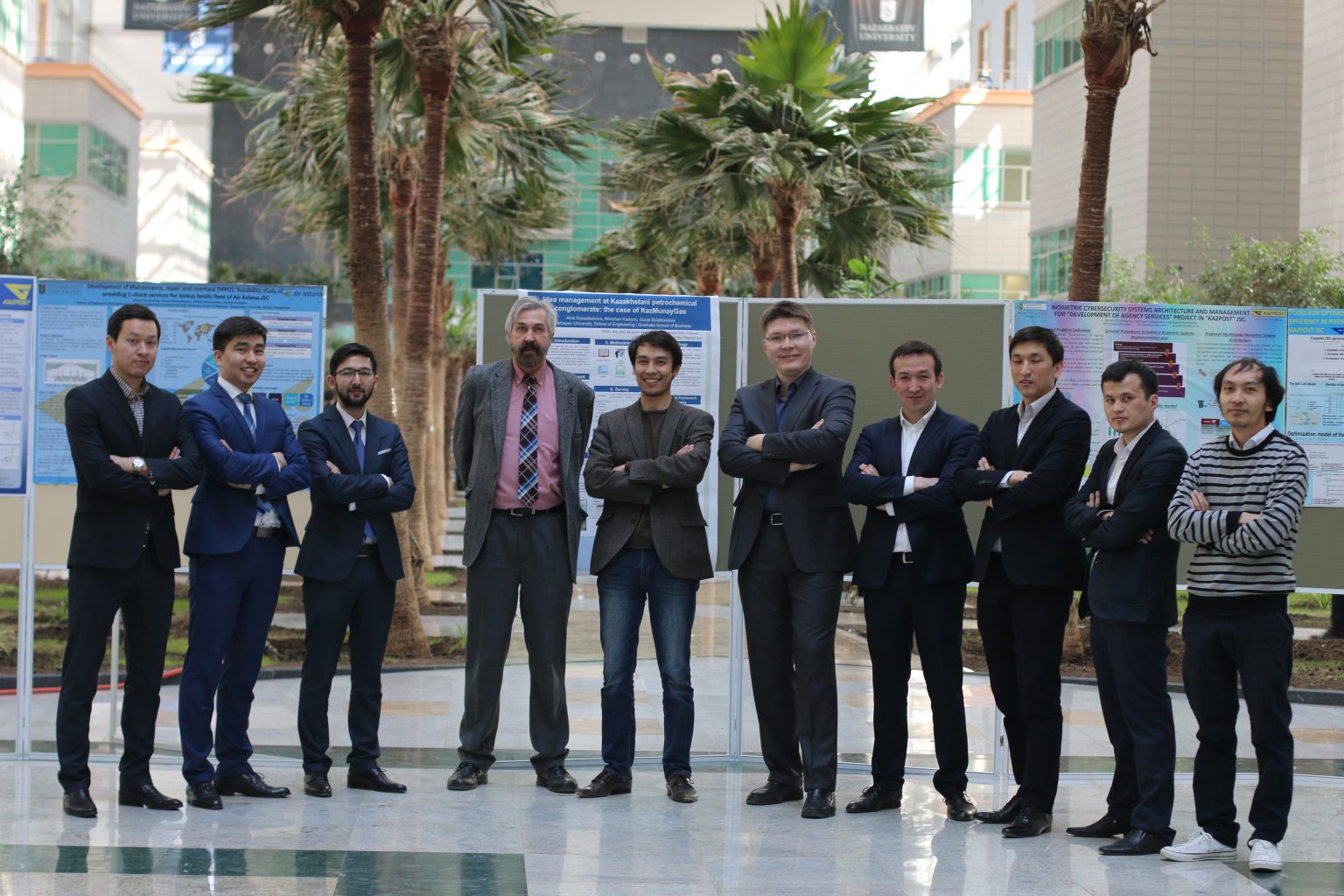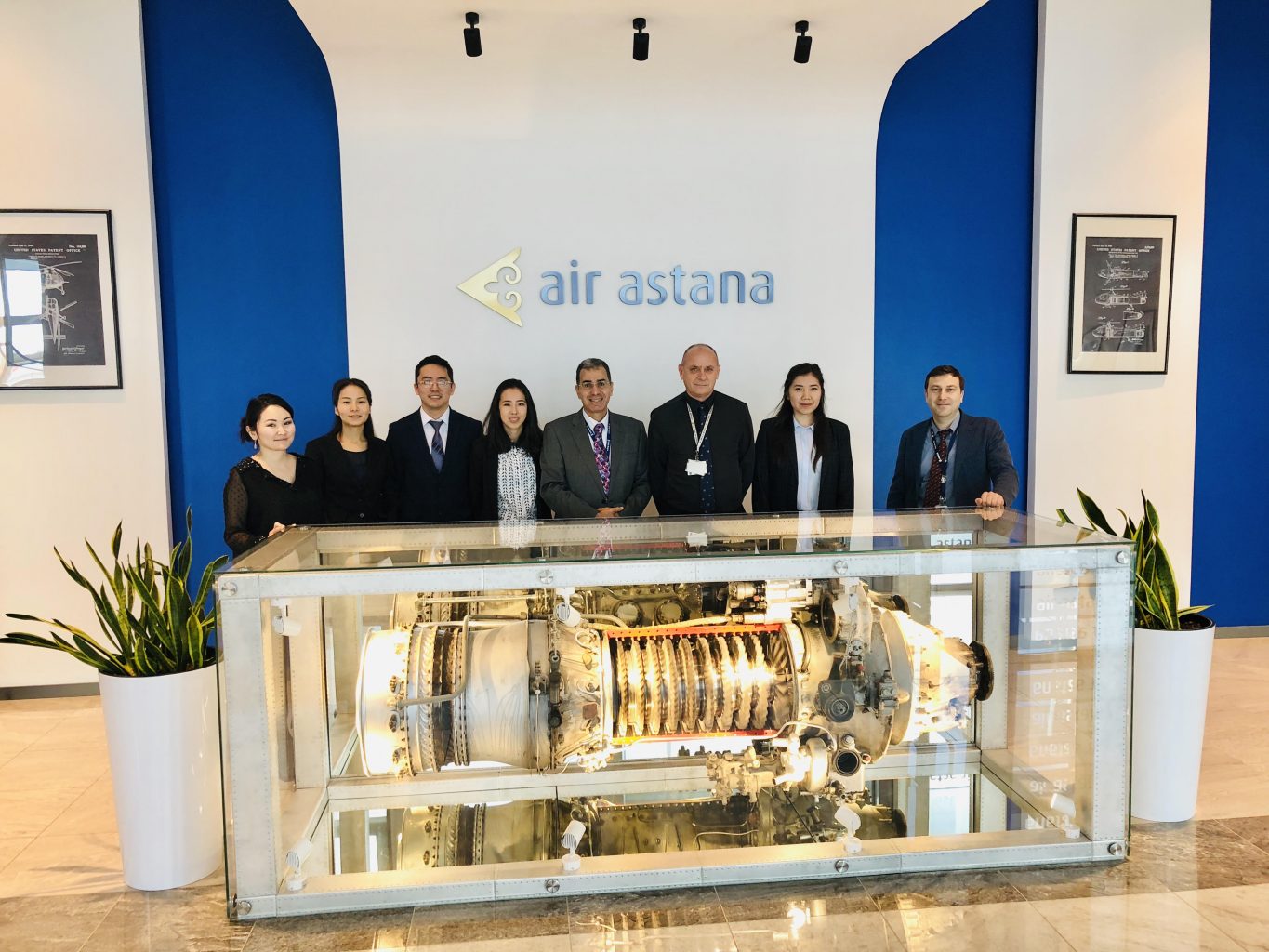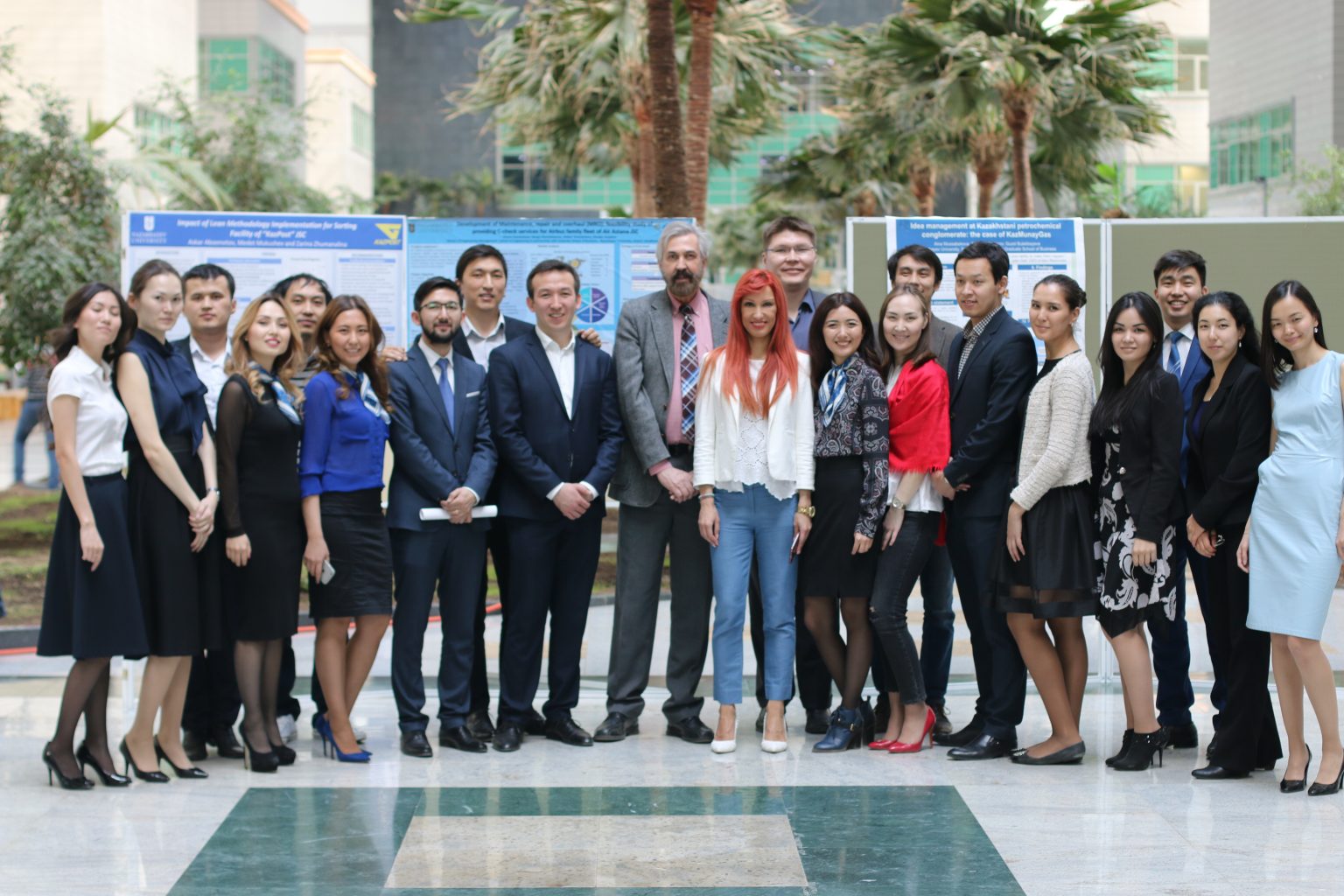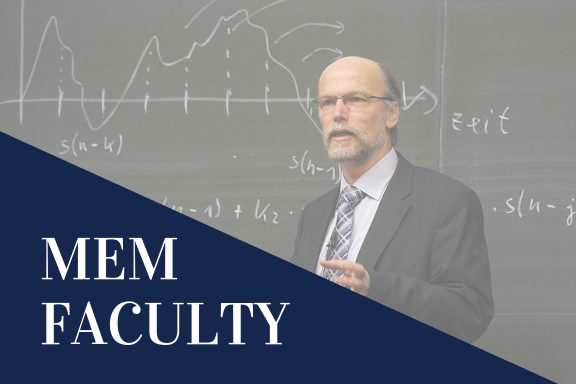
Dear students,
Welcome to Nazarbayev University!
At Nazarbayev University, we attempt to provide you world class faculty and facilities support to explore your strengths and develop your talents.
We understand that quality education with a balanced campus life is pivotal to students. In
terms of quality education, programs at Nazarbayev University are all assured and monitored by a robust system. Our programs are all up to the trend and the knowledge and skills gained throughout the study can be readily applied in the workplace.
One will admit that academic achievements are to be complemented by a fruitful campus life in which students should be able to develop some soft skills such as time management, communication, teamwork, etc.
In the years ahead, we will be working closely with all other supporting units in the university so as to provide a holistic support in your study. We hope that you will enjoy a colourful campus life on the campus - make new friends, use the library and sports centre, join student clubs and societies, and so on.
Once again, welcome on board and wish you a rewarding study experience at Nazarbayev University!
Applicants applying to the Program are expected to have:
1. An undergraduate degree (Bachelor’s degree or equivalent).
During the application period final year students may submit official current transcript for consideration.
2. A minimum CGPA of 2.75 out of 4.0 (or equivalent).
3. High level of English proficiency.
The absolute minimum requirement for English language proficiency test reports for admission to the program is:
1) Overall IELTS test score of 6.5 (with sub-scores no less than 6.0) or the equivalent TOEFL score as posted on the ETS website;
2) Candidates with not sufficient IELTS score may be admitted to the ZERO-year program:
The absolute minimum requirement for English language proficiency test report for conditional admission (NUZYP) is an overall IELTS test score of 5.5, with no more than one sub-score of 5.0, or the equivalent TOEFL scores as posted on the ETS website;
3) Applicants, at the discretion of the Admissions Committee, can be exempted from submitting the language proficiency test report if:
- one of their earlier academic degrees was earned in a country with English as the language of official communication, academic instruction and daily life;
- an undergraduate and/or graduate degree was earned in a program which was officially taught in English.
4. Strong mathematical skills as demonstrated by a test administered by the School on a set date. Applicants who provide valid GRE or GMAT test certificate may request exemption from mathematical skills test;
5. High motivation and strong interest in the program as outlined in a statement of purpose;
6. A curriculum vitae;
7. Two letters of recommendation.
Application package checklist:
1. Complete Application form;
2. National ID (for the citizens of the Republic of Kazakhstan) and passport (for international applicants);
3. Official document confirming name change (if applicable);
4. Bachelor’s (or equivalent) degree diploma with transcript;
During the application period final year students may upload official current transcript for consideration.
5. IELTS or TOEFL certificate valid as of date of online documents submission;
6. Document confirming English as the language of instruction (only for applicants who earned their degree in a program which was taught in English and request an exemption from submitting IELTS or TOEFL).
Applicants should provide a detailed certificate/reference from the university indicating the number and list of subjects completed in English.
7. Curriculum vitae (up to 2 pages);
8. GRE/GMAT certificate valid as of date of online documents submission (if applicable);
9. Statement of purpose (up to 1 page);
10. Two confidential letters of recommendation (at least one academic reference) written within the last 12 months (to be provided by referees electronically or in hard copy after receiving an email request);
11. Consent for Applicant’s personal data processing (according to the template in applicant’s personal account).
Important:
All required documents indicated above (excluding letters of recommendation) must be uploaded by candidates to the Personal account before the indicated deadline.
All submitted documents shall be in English or with notarized English translation.
Submission of a complete application package does not guarantee admission to the Program.
Applicants recommended for admission must provide hard copies of all documents as requested by the Admissions Department within established period of time.
Applicants who obtained their degree diplomas/certificates from foreign education institutions must request their official transcripts to be sent directly to the University: 010000, Nur-Sultan, Kabanbay Batyr Ave., 53, Nazarbayev University, Admissions Department.
Program Overview
The Master of Engineering Management (MEM) degree program is a specialized degree program offered by the School of Engineering and Digital Sciences (SEDS) in partnership with the Graduate School of Business (GSB) at Nazarbayev University (NU). The aim of the program is to prepare students with the technical skills and business knowledge for leadership of engineering-related units of enterprises with innovative solutions for complex business problems.
The MEM program emphasizes adapting and applying analytical skills and scientific knowledge into business practice. Students learn about project management, operations management, supply chain management, engineering management, engineering economy, quality and lean management, marketing, R&D management, new product development, entrepreneurship, business ethics, business strategy, business communication, leading change and innovation, and many other aspects of managing a successful business.
An engineering management degree qualifies professionals for a diverse array of jobs, including:
- Engineering Project Manager. This professional has direct authority over the actions of everyone on the work site. A combination of engineering knowledge and business acumen is essential.
- Senior Lead Analyst. This specialist ensures that engineering teams reach the most efficient outcomes on their assigned tasks.
- Cost Systems Analyst. A combination of financial management knowledge and engineering skills is necessary for this position. These individuals have a direct impact on the bottom line of large-scale projects.
- Industrial and System Management Engineer. This specialist ensures that industrial emissions are moving safely through the production system.
- Technical/information technology consultant. This specialist brings specific expertise to the design, instruction, or operations of technical solutions.
- Innovation Analyst is a specialist who does tech discovery, tech intelligence and scouting, market analysis, competitor analysis, or investment analysis.
- Logistics Manager ensures that products, inventory, parts, or people move from one place to another efficiently and cost-effectively. Logistics and supply chain management is a key part of the supply chain, working to plan, control, and implement the storage and flow of products, materials, information, or services.
It is the School mission to train the future scholars of Kazakhstan. By delivering the Master of Engineering Management program at an international standard level, we are offering our master’s students new opportunities in terms of Ph.D. and positions in research centers, here or abroad.
Contact us:
e-mail:
admissions.seds@nu.edu.kz
Landline:
+7 (7172) 706613 (Program related questions)
Admissions call-center:
+7 (7172) 70 65 55
Student recruitment
Applicants to the program must have an undergraduate degree from one of the following disciplines including, but not limited to: engineering, construction, architecture, and various science and technology degrees.
Candidates would typically have an engineering or science degree with a work experience at companies with engineering-related activities.
Deficiencies in subject areas will be made up through appropriate prerequisite coursework.
All students admitted to the Engineering Management program are eligible for tuition and a stipend funded by the government.
Aims and Objectives
The aims of the MEM program are:
- To provide postgraduate engineers with the current tools, knowledge and skills necessary for a successful career in local and global engineering management.
- To support the progression of engineers of all disciplines to management roles in both private and public sectors.
- To develop future leaders of technology-based organizations by providing a state of the art and applied engineering management curriculum to a select group of high potential students with science and engineering backgrounds.
- To promote the importance of entrepreneurship, intrapreneurship and the core values of ethical enterprise in modern economies


Graduate Attributes
NU graduates from the MEM program shall:
GA1. Possess an in-depth and sophisticated understanding of their domain of study.
GA2. Be intellectually agile, curious, creative and open-minded.
GA3. Be thoughtful decision-makers who know how to involve others.
GA4. Be entrepreneurial, self-propelling and able to create new opportunities.
GA5. Be fluent and nuanced communicators across languages and cultures
GA6. Be cultured and tolerant citizens of the world.
GA7. Demonstrate high personal integrity and
GA8. Be prepared to take a leading role in the development of their country.
The MEM program delivers these attributes by providing the students with opportunities to be involved in individual and group work, team building exercises for developing decision making skills, engaged with design tasks for developing creativity, presenting project reports to polish their communication skills and through group discussions among group members and faculty, develop personal integrity and cultural tolerance. These attributes are addressed by the learning outcomes that follow.
Description of the Courses

Research Groups
Dr. EssamShehab – Digital Manufacturing, Cost Engineering
Dr. Mariza Tsakalerou – Business Networks, Knowledge Management
Dr. Ali Turkyilmaz – Operations, Quality and Lean Management, Industry 4.0
Some Indicative Research Areas
Integration of Kazakh SMEs into Global Supply Chain
Service Setting Quality and Operational Efficiency (Healthcare and others)
Product Service Systems (model sustainability and applications)
Sustainable & Smart City Services (city logistics and transportation, sustainable energy provision, eco-friendly city services)
Digitization in business companies (including SMEs)
Forecasting aircraft spare parts and their inventory management
Exact solution of large and complex manufacturing systems
Design and control problems in these large and complex manufacturing systems
Integrated supply and production systems analysis and design:
Industry 4.0 in Logistics and Supply Chain Management operations.

This course addresses the primary need for graduate students to undertake formal training that will help them in understanding how to conduct their research. The course will develop students’ understanding of research planning and engender skills enhancement for reading, interpreting, writing about and presenting key ideas. The course will also instill an understanding of a variety of research methods and ethics, as well as implementation of appropriate strategies in lecture and workshop settings.
Engineering Management is the integration of human relations, planning and control concepts, systems analysis and design, and principles of management oriented toward engineering functions within an organization; organizational design and administration as they impact along the product life cycle, i.e., research, design, development, production, and use.
Engineering Economy is concerned with fundamental concepts and advanced techniques of engineering economic analysis; evaluation of alternative capital investments considering income taxes, depreciation and inflation; discounted cash flow analysis of competing projects, break-even analysis and determination of rate of return on investment, Risk and uncertainty in engineering analysis. This course will help students to explore strategies, models, and practices for leading and managing engineering organizations in a context directly relevant to them. They will engage in self-reflection about their styles, beliefs, and past experiences with leadership and management, and emerge with an insightful understanding of their personal approach as a professional. Besides, students will learn to improve their grasp of the "big picture" and how daily decisions affect the financial performance of an organization. They will learn the principles and practices of interpreting financial information and performing engineering-related economic analyses. This course focuses on current practices, using economic information for decision-making and control. Students will practice applying these techniques to applications in real firms.
The course deals with the study and practice of Project Management from project inception to completion. Initially, the knowledge areas, methodologies and approaches for project evaluation and selection among candidate projects are presented, and the necessity to align the project management objectives with the strategy of an organization are highlighted. Then, a step-by-step presentation of the Project 13 Management knowledge areas is performed, starting from Integration Management and passing through Stakeholder Management, Scope Management, Schedule Management, Cost Management, Communications Management and Risk Management, accompanied by elements of Change Management and Earned Value Management. A thorough presentation and analysis of most globally accepted and universally adopted tools, methodologies and techniques is performed, accompanied by the examination of a business case where all such tools are applied. Students work in groups to analyze the business case, to develop appropriate documentation and reports, and to present their results in class, in a strongly interactive context. In parallel, students spend significant time learning and practicing with MS Project 2016, where project modeling, planning, scheduling, optimization, budgeting, resource allocation, baselining, tracking and reporting aspects are examined and practiced for a project that is progressively developed. The acquaintance with this software enables students to profit of their knowledge in the job market and encourages them to pursue relevant certification(s). The entirety of the course strengthens the link between theory and practice and prepares students for employment in local and/or international projects.
How do companies ensure innovative ideas are transformed into a product or service? Irrespective of their size, location, number of employees, revenue margin, or industry segment, all companies transform their innovative strategies into real-world products/services. Some companies have well-defined transformation steps that they call product/service development process; others simply just do whatever it takes without organized planning. But in general, they all go through major iterative phases such as: discovery, definition, development, demonstration, qualification, deployment, and lifecycle management. Furthermore, there are factors that impact all these phases such as: source of funding, people relations, supply chain, design/development tools, time constraints, internal/external regulations, etc. Adequate management of these factors enables the development process to be executed on time and on budget in order to meet customer needs and stakeholders' expectations. This course intends to provide an understanding of the product and service development process elements and the factors influencing the execution of the process.
The goal of this course is to cover both the high-level supply chain strategy and concepts (the strategic role of a supply chain and the key strategic drivers of supply chain performance: facilities, inventory, transportation, information, sourcing and pricing) and to give students a solid understanding of the analytical tools necessary to solve supply chain problems. Particular attention is being paid to the managerial context in which the methodologies are used and the managerial levers for supply chain improvement. Special emphasis will be paid to the analysis of case studies of well-known international firms for the students to apply successful supply chains in local firms to improve their performance.
The Capstone Project is designed to be a reflection of a culminating set of personal, academic, and professional experiences. Students work in teams to apply to synthesize knowledge and skills acquired during the course of their education to solve design, construction and operational problems with real-world constraints and relevant to the industry. The requirement is that projects must focus on and draw upon selected engineering and management principles and concepts in addressing the challenge. In addition, students will learn how to apply and implement the theory in an organizational setting and to develop team-based skills and learn how to communicate technical issues to a variety of personnel in an organization
Optimization is the problem of making decisions to maximize or minimize an objective in the presence of complicating constraints. This course will cover theories, methods, and applications of linear programming, integer programming, nonlinear programming, network models, decision analysis and games. Students will learn optimization methods and their applications to problems in engineering and business. Optimization can bring efficiency throughout the organization and may be used in the design and analysis of engineered systems of all kinds. The course emphasizes on modeling, the process of taking a real-world problem and transforming it into a formulation that can then be solved by the optimization methods. Throughout the course, Microsoft Excel will be used as a modeling environment, using add-in programs as necessary. Familiarity with Excel is an important prerequisite for this course.
Knowledge is considered as one of the most important resources of modern organizations, leading to successful implementation of organizational changes, generation of innovation, and attainment of sustainable competitive advantage. This course, therefore, aims at understanding and implementing concepts and management practices that refer to the effective acquisition, processing, and use of knowledge resources in a way that allows organizations to learn, innovate, adapt to changes occurring in their internal and external environment, and achieve high performance
This course covers advanced data-mining methods now possible in business and research; Introduction to software for data-visualization and pattern recognition in Big Data and Information Architecture of the Big Data Cloud including an introduction to the latest technologies for distributed data storage, indexing, search, retrieval, and analysis. Students will analyze real-world data and communicating actionable findings in compelling form.
This course will continue the approach followed in the Engineering Decision Tools course in order to analyze more Operations Research methods and algorithms. The main target is always to show students how to formulate and solve business and engineering problems, using mainly the MS Excel Solver, add-in programs and other software packages. The course will cover the following topics and models: Multiple-Criteria Decision Models: Goal Programming Models; Waiting Line/Queuing Models, Queuing Network Models and their applications in Service Systems and Manufacturing Systems; Markov Decision Processes; Monte Carlo simulation and Simulation Modeling, Optimization in Simulation.
This course explores issues related to planning and controlling the processes used to produce the goods and services provided by an organization. Managing these complex processes including resources such as human, materials, inventories, and facilities can be quite challenging. The course will introduce students to the functional area of operations and will increase their knowledge of how a firm's operations interface with the other functional areas of the organization, familiarize students with the various issues and problems that traditionally arise in the management of operations within both manufacturing and service organizations, and acquaint students with some of the methodologies in the handling and resolution of operations issues and problems. The contents of the course include both Production Management and Service Management.
The terms Quality and Lean are recognized as the key for the companies which want to satisfy their customer and efficiently manage their resources. The aim of Quality Management is to produce more reliable products and services by decreasing the variability. And the aim of Lean, on the other hand, is to increase the productivity by value creation and elimination of waste. The objective of this course is to teach students the definition of both quality and lean with differences and similarities and then implementation of them in production and service industries. This course covers the general concepts, and principles of quality management and lean production such as customer focus, value creation, process management, value stream mapping, waste removal, visual management, and continuous improvement.
This course explores a framework encapsulating the entire systems engineering discipline and addresses the topics of systems engineering relevant to all professions associated with the complex human-made systems. The course identifies methods for thinking about large, complex problems as an integrated whole, capturing the problem and documenting it systematically; then decomposing the problem into smaller units that can be designed, built, and integrated to achieve the desired result.
The course covers the fundamental principles of financial and managerial accounting. The principal objective of the course is to develop your ability to read, understand, and use corporate accounting information. To achieve this objective, the course introduces the basics of financial reporting (including both the U.S. and international standards) to information users outside of the firm—as well as selected topics on the internal (i.e., managerial), uses of accounting information. Because the course takes the perspective of a user of the accounting information, it focuses on the concepts relevant to decision makers—such as managers, current and prospective investors, creditors, customers, suppliers, and regulators.
In order to understand how accounting reports reflect the underlying economics of the firm and to use them in making forecasts, you should know the basics of record keeping, have a good grasp of the effects of typical business transactions on the accounting statements, and understand the implications of generic business strategies (e.g., product differentiation) for the firm’s financial reports. We will also study the financial reporting environment, the role of the standard-setting bodies and other key players, and the desirable properties of accounting information (e.g., relevance and reliability).
The course focuses on how economic events and transactions are reflected in the firm’s accounting system as financial and non-financial information, how this information is processed and communicated to the users. To be informed users, you should understand the nature of the decisions at hand; accordingly, the course will draw on the insights from microeconomics, decision analysis, operations management, and finance.
This course examines important issues in corporate finance from the perspective of financial managers who are responsible for making a significant investment and financing decisions. The course covers both financial tools and applications. The first part of the course will focus on mastering the tools that lay beneath all modern financial decision making. Broadly speaking, this involves discounted cash flow analysis that appropriately takes into account taxes, as well as equilibrium risk and return tradeoffs faced by participants in capital markets. The second half of the course explores contemporary issues that will be of importance to anyone seeking a job in the financial markets industry. A wide range of topics will be covered, such as venture capital, private equity, mergers and acquisitions, initial public offerings, and financial distress.
While the course is not designed to dwell on abstraction, the basic theoretical underpinnings of the various topics are a prerequisite to competitive analysis. An emphasis is placed on the development of problem-solving skills based on a good understanding of the business environment as opposed to pure theorizing or mindless numbers exercises. Because of the practical importance of the material and as an illustration of the relevant theory, students will discuss examples and cases.
The course will provide you with a systematic framework for understanding marketing management and practice. The classes will combine the theoretical and practical part following an open discussion format. The course puts emphasis on how to (1) assess marketing opportunities by analyzing customers, competitors, and their own company (the 3 C's), and (2) design effective marketing programs via selecting appropriate strategies for pricing, promotion, place, and product (the 4 P's). Accordingly, this course is organized around these three C's and four P's. While most course sessions emphasize one of these topics, please note that the goal of this course is to prepare you to create a marketing strategy that concurrently addresses all of these points.
This course deals with the work and understanding of strategic management. The course adopts the perspective of managers within the corporation, business, division, plant, or other operating units who must align their individual actions and responsibilities with the overall objectives of the firm. During the course, students will focus on the perspectives and skills required to diagnose and find realistic solutions for critical problems in complex business situations. The course deals with issues of both managerial effectiveness and business efficiency-emphasizing "doing the right things" as well as "doing things right," while avoiding falling into the trap of doing the wrong things really well. This course will teach strategic skills and techniques that can be used to analyze any situation in any environment. Students will learn how to analyze a case end-to-end and recommend an appropriate course of action. Prerequisites: Finance and Accounting
The purpose of this course is to prepare the student to be an effective leader and manager of others regardless of career path and to be a good analyst of how best to organize people. The course will focus on two broad sets of questions. First, what principles can one draw on to analyze and improve performance in organizations? How can a manager exert influence for positive results at any level of an organization? How can the manager maintain high ethical standards? Students will examine principles for designing incentive systems, motivating employees, running effective teams, making good decisions, harnessing diversity, and organizing the distribution of work. The second set of questions concerns what an individual needs to do to be an effective leader. What can the graduate contribute to his/her firm and why should others respect and listen to him/her? Students will be challenged to reflect on their own personal strengths and weaknesses and to develop specific strategies for making a difference in any organization
The primary objective of this course is to acquire knowledge and gain an understanding of the basic principles associated with effectively leading change initiatives in organizations. Students will be introduced to the theories, concepts and practices of managing change, whether planned, incremental and localized, or revolutionary, under conditions of stability or crisis, and system-wide. In effect, change theories and contemporary practices will be examined at the individual, group/departmental and organizational levels. Beyond studying the causes and consequences of change, and the advantages/disadvantages of leading change from the top as opposed to bottom-up change, we will also investigate potential sources of resistance to change and strategies for overcoming them.
A second objective is to contribute to the development of the professional and clinical skills of students as change agents through intensive study and case analyses. The perspective taken is that of the responsible leader and the role he or she can and should play with respect to understanding and managing context, content, and process. More specifically, through intensive case analyses, we will study where and under what conditions the need for change is called for (context), what form or type of change is required (content), how change can be successfully implemented or managed (process), and competencies development or key success factors for those leading or managing change program or initiatives in organizations.
The focus of this course is the successful creation and early execution of a new venture. The course concentrates on new enterprises based on substantial innovations with potential for high growth and funding by venture capitalists. The course covers the topics of industry entry, new firm formation, the advantages and disadvantages of small firm size for technological competition, achieving and sustaining competitive advantage within industries, and patterns of technology and industry evolution and associated windows of opportunity for entry. In the first part of the course, students will concentrate on opportunity evaluation and business plan development. Then, in the second part of the course students will explore the strategic challenges of managing growth and realizing value. The psychology of entrepreneurs and how that might affect the quality of their decisions will also be considered.
This course presents competent communication as a critical component for personal career and organizational success. We will work to understand the foundation of competent communication in the business world as well as to assess and improve our own verbal and written communication to be more effective, clear, appropriately assertive and based in foundations of personal integrity and leadership. Students will practice developing and delivering presentations, using appropriate and effective visual support, which will demonstrate relevance and benefits to audiences at varying levels or expertise and interest.
Students will also practice drafting and editing succinct, clear, readable written business documents which create effective and memorable messages.
The capstone project is an end-of-program assessment exercise designed to ensure that the graduates of the program have successfully met all their program learning objectives. The capstone project is thus used in MEM primarily for summative purposes. The project culminates in a team report (capstone project) that is publicly defended. Submission of a CP report and completion of this 16 ECTS module with a letter grade is a graduation requirement for MEM.
The CP provides an opportunity for the students to plan and execute a major applied project and thus demonstrate mastery of the technical and managerial skills required in their chosen profession. The CP is a unique exercise and successful completion in the allotted timeframe depends on prior preparation, careful time management and strict adherence to project timelines.
Students Capstone Projects from the last years
| COMPANY | PROJECT TOPIC |
| KAZAKH TELECOM | Innovation Management in the Telecommunication Industry |
| AIR ASTANA | Inventory Management and Forecasting Models for Aircrafts
Development of Maintenance, Repair and Overhaul (MRO) Transformation Framework to Heavy Maintenance |
| GE, LKZ | Lean Management in A Locomotive Company
Warehouse Operations Optimization and Material Presentation |
| KAZPOST | Biometric Cybersecurity Systems Architecture and Management
Optimizing and Improving Efficiency in Postal Routing Operation and Business Effectiveness Lean Methodology Implementation in A Sorting Facility |
| KAZMUNAYGAS | Idea Management at Kazakhstani Petrochemical Conglamorate |
| BI GROUP | Construction Waste Management
Strategic Planning and Organization Development |
| KTZ | Predictive Model for Railway Freight Transportation
Cost & Benefit Analysis of High Speed Rail Systems In Kazakhstan |
| ERG | Digitalization Strategy Development
Improvement of Heavy Equipment Tire Disposal Process |
| OPEN TECHNOLOGIES | Digitalization of Public Transportation System |
Capstone projects and partners on the MEM program:
| General Electric(GE) | Lean Management in LKZ |
| ERG | Digitalization strategy |
| Air Astana | Transformation Framework of Air Astana to Heavy Maintenance |
| General Electric(GE) | Digitalization in transport sector in Kazakhstan |
| Eurasian Resource Group | Design and construction of an energy recovery power station on a ferroalloy gas of 90 MW on the basis of the Aktobe Ferroalloys Plant |
| Air Astana | Inventory Management techniques for the spare parts of Air Astana |
| Air Astana | Forecasting techniques for the spare parts of Air Astana |
| Open Technologies Group | Digitalization of transport system in Pavlodar |
| Kazakhtelecom | Cost & benefit analysis of three cross-continental high speed rail systems in Kazakhstan |
| Air Astana | Inventory management models of Air Astana Aircraft-On-Ground (AOG) spare parts |
| Kazakhstan Temir Zholy, JSC | Cost & benefit analysis of three cross-continental high speed rail systems in Kazakhstan |
| Locomotive Manufacturing Plant (LKZ) | Warehouse operations optimization and material presentation on production floor through implementation of pilot kitting process and utilizing lean |
| ERG | Improvement of ERG's heavy equipment tyre disposal process |
| Air Astana | Forecasting models of Air astana Aircraft-On-Ground (AOG) spare parts |
| BI GROUP | INTEGRATING BI LAB AS AN EFFECTIVE ORGANIZATION WITHIN BI GROUP |
| BI GROUP | Application of Global Construction waste Management practices to improve BI GROUP's performance |
| Kazakhstan Temir Zholy, JSC | Development of a Predictive Model for Railway Freight Transportation of Kazakhstan Temir Zholy, JSC |
| BI GROUP | IDENTIFYING AND REMOVING BARRIERS TO INNOVATION IN BI GROUP |
| AIR ASTANA | DEMAND FORECASTING AND INVENTORY CONTROL OF THE SPARE PARTS OF AMS FLEET & EQUIPMENT SOLUTIONS ASTANA BRANCH |
| AIR ASTANA | AIR ASTANA AIRCRAFT ON GROUND (AOG) ANALYSIS: FORECASTING AND INVENTORY MANAGEMENT OF AOG SPARE PARTS |
| "KAZPOST" JSC | BIOMETRIC CYBERSECURITY SYSTEMS ARCHITECTURE AND MANAGEMENT FOR "DEVELOPMENT OF AGENCY SEERVICES" PROJECT IN "KAZPOST" JSC |
| "KAZPOST" JSC | TOOLS FOR OPTIMIZING AND IMPROVING EFFICIENCY IN POSTAL ROUTING: A CASE STUDY OF KAZPOST JSC |
| "KAZPOST" JSC | OPERATION AND BUSINESS EFFECTIVENESS OF KAZPOST BRANCHES |
| AIR ASTANA | DEVELOPMENT OF MAINTENANCE, REPAIR AND OVERHAUL (MRO): FEASIBILITY STUDY OF PROVIDING C-CHECK SERVICES FOR AIRBUS FAMILY FLEET OF AIR ASTANA JSC |
| AIR ASTANA | AIR ASTANA INVENTORY MANAGEMENT |
| KAZMUNAYGAS | IDEA MANAGEMENT AT KAZAKHSTANI PETROCHEMICAL CONGLAMORATE: THE CASE OF KAZMUNAYGAZ |
| "KAZPOST" JSC | IMPACT OF LEAN METHODOLOGY IMPLEMENTATION FOR SORTING FACILITY OF "KAZPOST" JSC |
| Year 1: Fall Semester (Semester 1) | ||
| TYPE | COURSE CODE & TITLE | ECTS |
| Core | MSC 615 - Advanced Statistics & Probability | 6 |
| MSC 616 - Research Methods And Ethics | 6 | |
| EMEM 533 - Engineering Management & Engineering Economy | 6 | |
| EMEM 507 – Project Management | 6 | |
| Elective | SEDS Elective Course | 6 |
| Year 1: Spring Semester (Semester 2) | ||
| TYPE | COURSE CODE & TITLE | ECTS |
| Core | Block 1: EMEM 510 Accounting | 4 |
| EMEM 511 Business Strategy | 4 | |
| Block 2: EMEM 517 Marketing | 4 | |
| EMEM 545 Business Communication | 4 | |
| Block 3: EMEM 513 Entrepreneurship | 4 | |
| EMEM 514 Finance | 4 | |
| Block 4: EMEM 516 Management of Organizations | 4 | |
| EMEM 548 Understanding & Predicting Consumer Behavior | 4 | |
| Year 2: Fall Semester (Semester 3) | ||
| TYPE | COURSE CODE & TITLE | ECTS |
| Core | EMEM 542 – Production And Service Operations Management | 6 |
| EMEM 537 – Engineering Decision Tools | 6 | |
| EMEM 523 – Supply Chain Management | 6 | |
| Elective | SEDS Elective Course | 6 |
| SEDS Elective Course | 6 | |
| Year 2: Spring Semester (Semester 4) | ||
| TYPE | COURSE CODE & TITLE | ECTS |
| Core | EMEM 535 – Managing Product & Service Development | 6 |
| Elective | SEDS Elective Course | 6 |
| EMEM 529 – Capstone Project | 16 | |
List of SEDS Elective Courses
- EMEM 509 Systems Engineering
- EMEM 527 Globalization and Engineering
- EMEM 538 Knowledge and Innovation Management
- EMEM 539 Big Data and Information Management
- EMEM 541 Operations Research Methods
- EMEM 543 Quality and Lean Management












